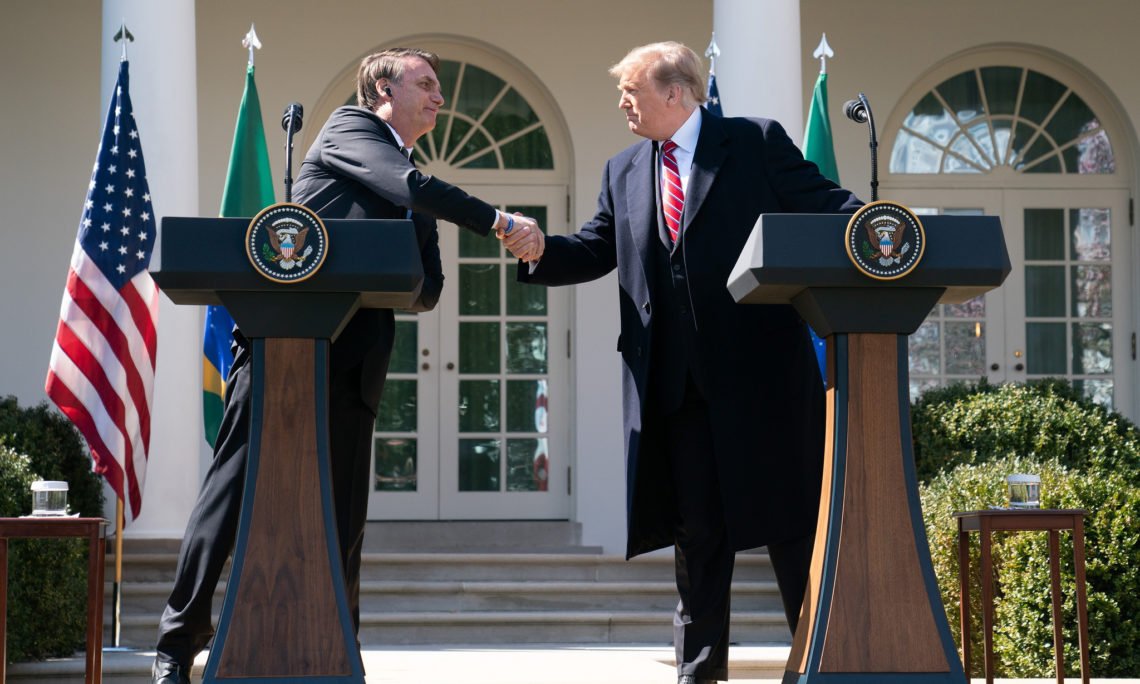RIO DE JANEIRO, BRAZIL – The governments of the United States and Brazil are working to curb China’s political influence in the World Health Organization (W.H.O.) in the post-pandemic period; the agenda is to curtail Beijing’s space, even in the country’s central role in supplying vaccines and other resources.
According to Brazilian government sources, the crisis opened in recent days between Brasília and São Paulo regarding the Chinese Sinovac vaccine technology can be viewed as part of this tactic designed to obstruct Beijing’s prominence.
However, the operation is only part of a broader strategy to contain Chinese expansion. Challenging the Asian country’s vaccine quality, questioning the role of Chinese authorities in the alleged release of the virus, and preventing Beijing’s proposals from gathering momentum, are all part of the diplomatic “arsenal” endorsed by Brazil.

In private meetings, the Brazilian government began to attack the Chinese regime, echoing the American standpoint. For months, Foreign Minister Ernesto Araújo also mentioned the risk of the virus of communism.
Faced with the W.H.O. shortcomings in providing a solution to the pandemic, the U.S. launched an offensive to restructure the organization. The White House persuaded Brazil to be part of the process and thereby try to prevent China from emerging economically stronger and more influential on the international scene in a post-pandemic scenario.
While W.H.O. Director-General Tedros Ghebreyesus spent months appealing for community unity and UN Secretary-General Antonio Guterres alerted to the risks of a lack of a global response, the U.S. government’s political and diplomatic goal was different.
Anti-Chinese shielding
A key to this strategy was to change the W.H.O. to prevent the world’s central health agency from serving Chinese interests.
In an initial document issued by Donald Trump’s government, American diplomacy is clear: “The WHO Director-General is exposed to political influence and pressures that may affect the WHO’s ability to take independent action.”
According to the American perspective, the result was a late W.H.O. arrival in China at the outbreak of the Covid-19 pandemic to assess what was actually happening. Furthermore, such pressure would have led the international agency to approve China’s measures even though it was unable to prove that they were the best, according to the US text.
According to the U.S. perspective, endorsed by Brazil, one of the goals is to render the WHO emergency department fully independent, also in financial terms.
The WHO reform, therefore, has one goal: to “isolate from political pressure” the organization’s emergency program and the Director-General himself. In other words: to prevent China from dictating what happens on the world’s health agenda.
Brazil has aligned itself with the U.S. to the detriment of its South American partners.
Months later, this initial American text was converted into a proposal, with Brazil’s support. Rather than frontal attacks against China, the document underwent a diplomatic coating, arguing for aspects such as “independence”, “impartiality” and guarantees that governments breaching health rules will be assessed.
Brazil, to the surprise of foreign delegations, chose to ally itself with the American proposed reform, while Chile and other Latin American governments drafted their own.
Itamaraty explains that the purpose in allying with the Americans and endorsing the proposal is to ensure that WHO is more transparent. According to the government, the American project is “a good starting point” for the reform process.
In the world agency’s recent meetings, the Chinese government made a point of stressing that its management of the pandemic was transparent. For Beijing, the instruction is to insist on the need for solidarity and to show commitment to the system.
China may be responsible for half of the Covid-19 vaccine production
Over the past few months, the Chinese have expanded healthcare cooperation to dozens of locations worldwide. In masks alone, the Chinese have exported over US$40 billion and now control the global market.
More recently, they announced their subscription to the WHO vaccine consortium. For now, no Chinese vaccine is part of the global alliance. But documents used by the initiative’s organizers concede that by 2023, 49 percent of the world’s Covid-19 vaccine supply will come from China, about seven billion doses.
As for the U.S. and Brazil combined, production capacity would be limited to two billion doses.
Source: UOL

